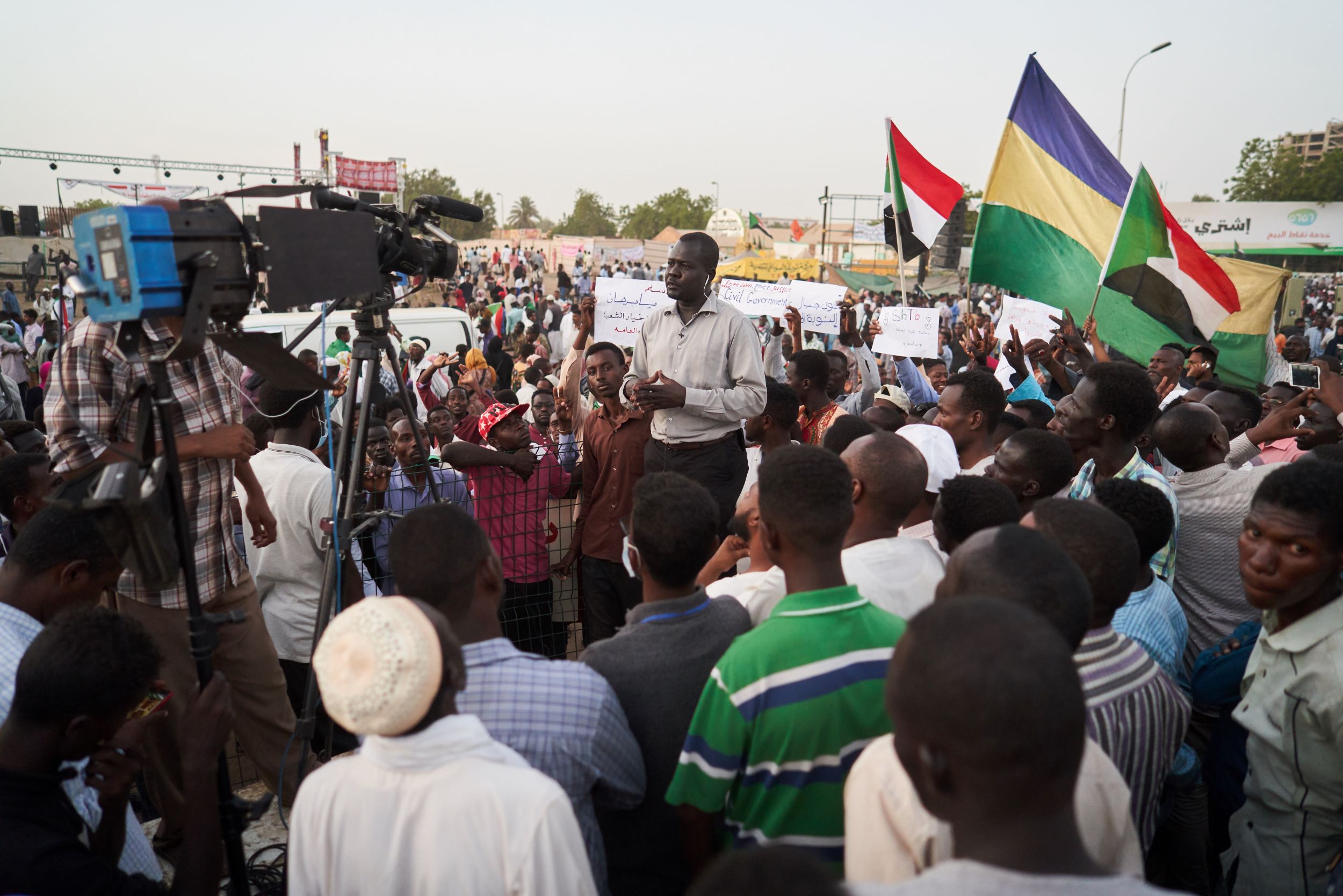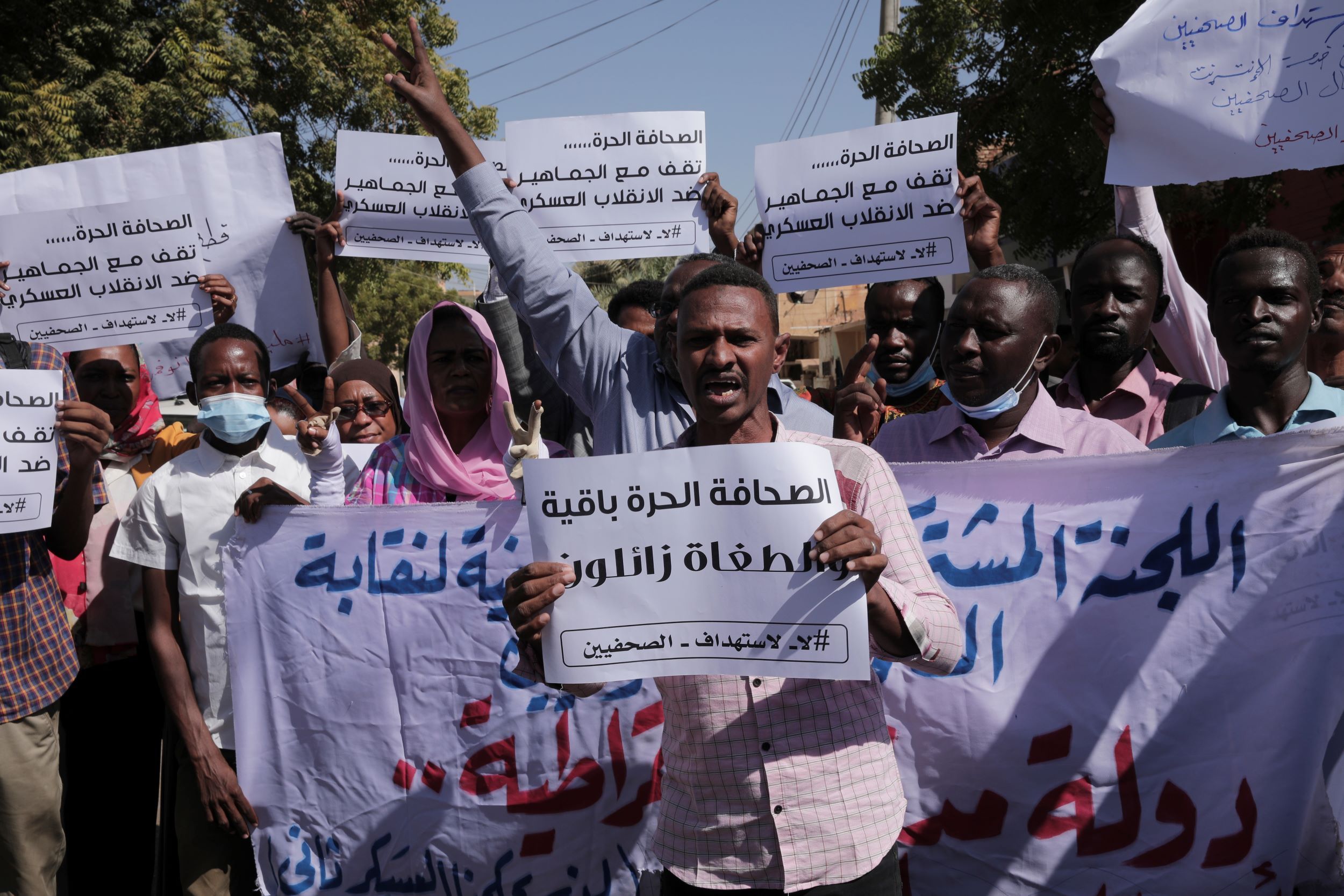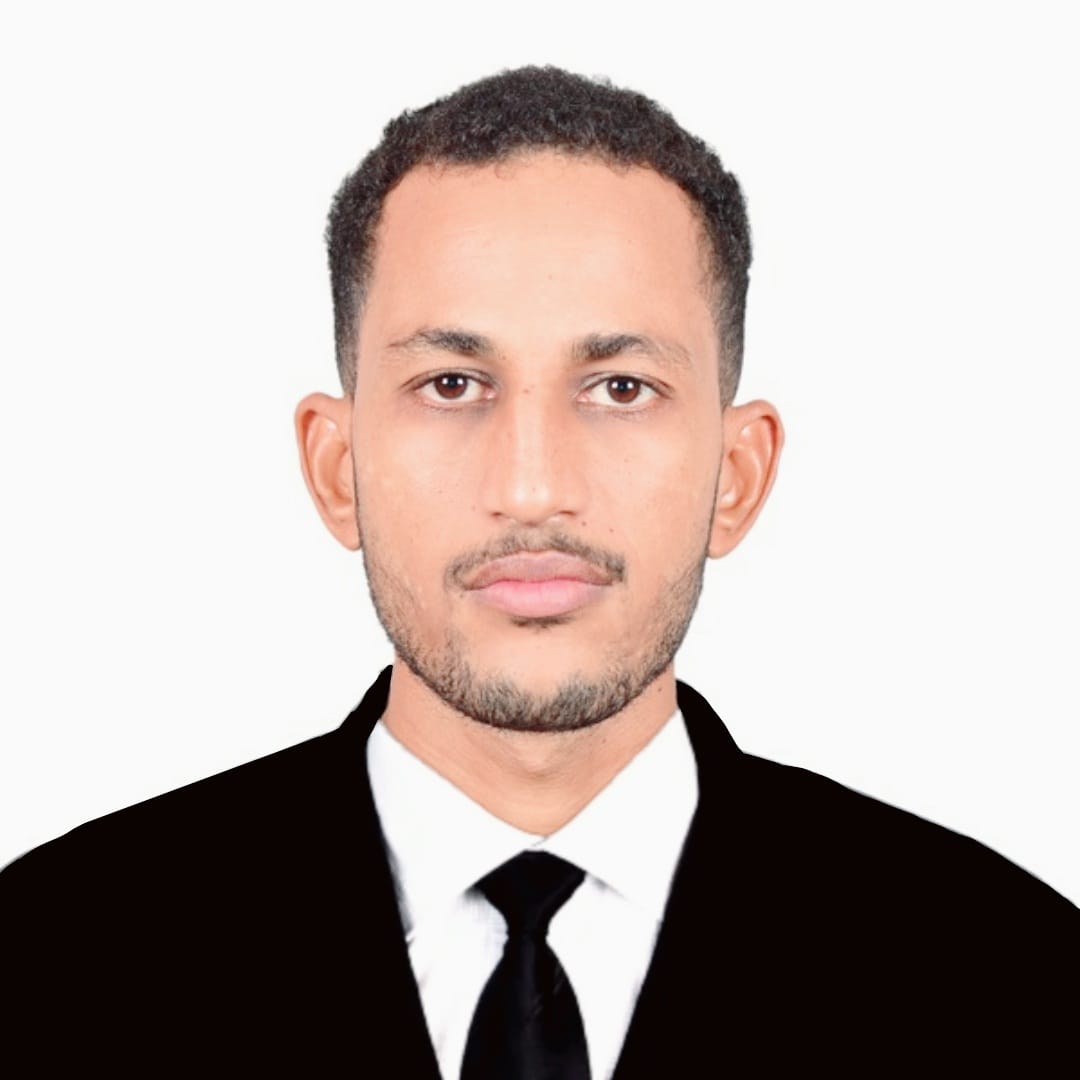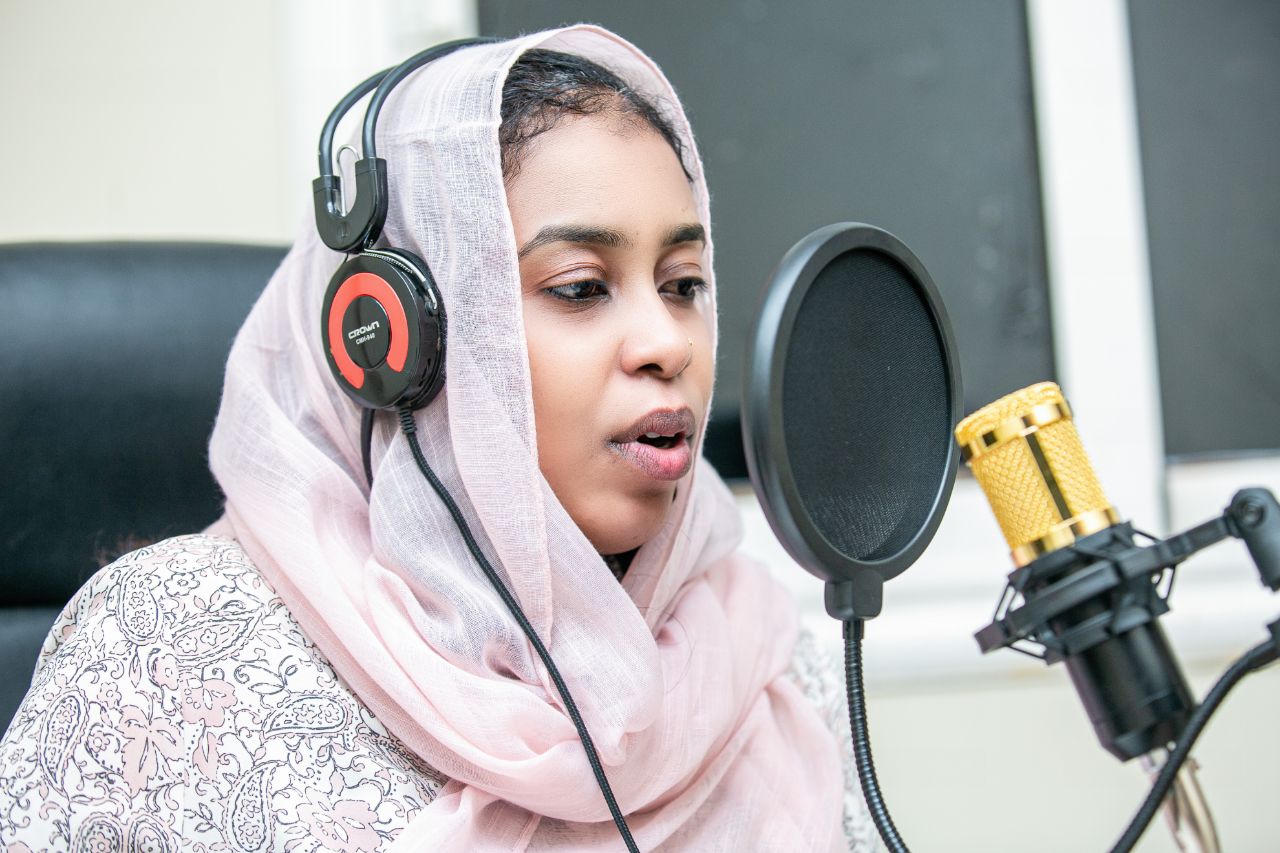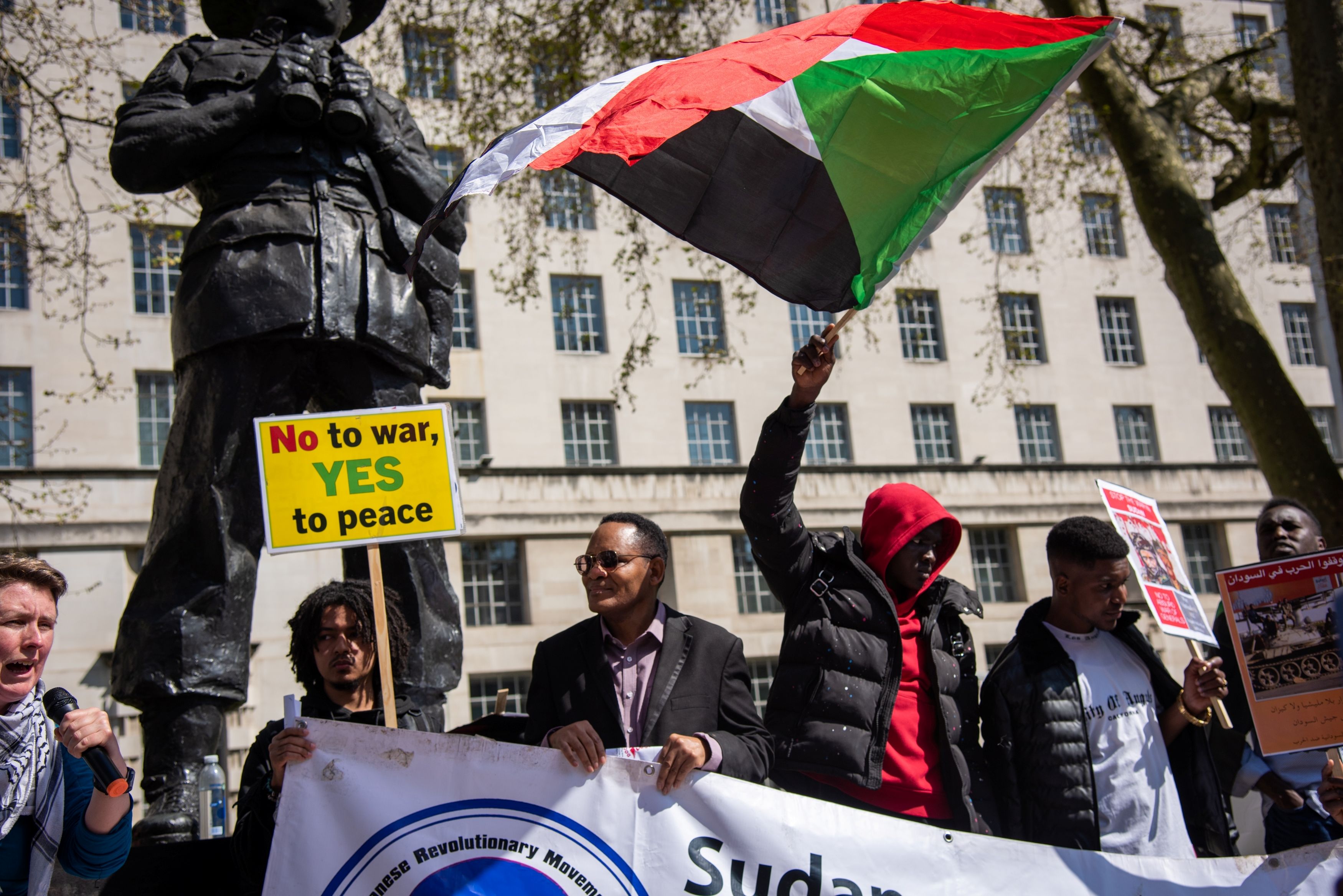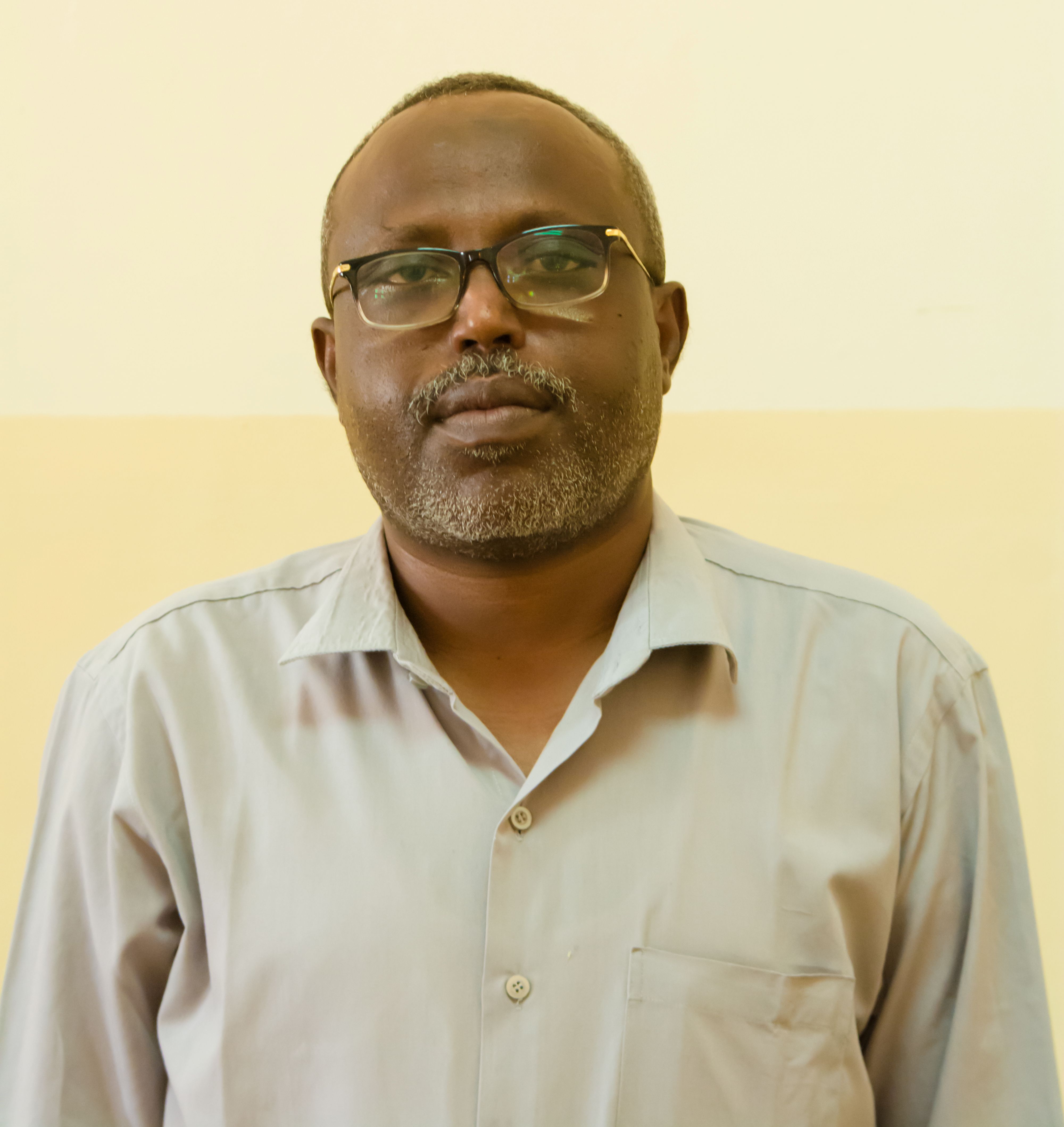The collapse of the media industry in Sudan has subjected journalists to physical threats and legal and professional challenges, with no functioning legal system to investigate crimes committed against the press.
Journalist Hassan Ahmed Berkia hasn't returned to Sudan since the start of the civil war pitting the leader of the Sudanese Armed Forces (SAF), Abdel Fattah al-Burhan, and the head of the paramilitary Rapid Support Forces (RSF), Mohamed Hamdan Dagalo. Hassan was on a visit in the United Arab Emirates when the war broke out on April 15, 2023. The fear of being targeted forced him to seek temporary refuge in neighbouring Egypt, eventually settling for an extended period in Uganda.
“I did not return to Sudan for two main reasons: First, the war was raging in Khartoum, and the conditions were unbearable for civilians – all of my family, friends, and colleagues had already fled the city,” 45-year-old Hassan tells Al Jazeera Journalism Review (AJR) in a WhatsApp text. “Second, as an independent journalist focused on press freedom and documenting violations, I found myself excluded by both camps. Instead of being recognized for my commitment to journalistic integrity, I have been denied opportunities that are often extended to journalists who align with one side or the other,” he says.
Both warring parties have repeatedly targeted members of the press, leaving no safe zones for journalists in either Sudanese Armed Forces (SAF) or Rapid Support Forces (RSF)-controlled areas. Since the conflict began in April 2023, the Committee to Protect Journalists (CPJ) has documented the killing of at least fourteen journalists, along with numerous cases of abduction, arbitrary arrest, enforced disappearance, torture, and exile affecting dozens more. Reporters Without Borders (commonly abbreviated RSF, but referred to here as RWB to avoid confusion with the Rapid Support Forces) reports that seven journalists have been killed, two are missing, 17 imprisoned (including two still in detention), and 431 exiled.
Oussama Bouagila, RWB’s North Africa Regional Advocacy Officer, considers Sudan as one of the world's “most dangerous” countries to practice journalism today. “Journalists operate in a climate of insecurity marked by the constant threat of arrest, assault, or even assassination,” Bouagila tells AJR in an email. “Many are internally displaced or have fled abroad, some having left the country permanently. The future is highly uncertain for most of them, in a context of lack of protective structures and political instability, which prevents them from planning for their safety, their employment, or even their freedom of expression for the future,” he says.
CPJ says journalists in Sudan continue to face severe threats, with many fleeing their homes or the country altogether.
Some remain missing or detained in unknown locations, especially in RSF-controlled territories, where documentation is extremely difficult.
“The overall toll remains underreported due to restricted access, communications blackouts, and fear of reprisal among survivors and their families,” Sara Qudah, CPJ's Middle East and North Africa regional director, tells AJR in an email.
“Both warring parties have repeatedly targeted members of the press, and there are no safe zones for journalists in either SAF- or RSF-held territories. Sudan is one of the most dangerous countries in the world for journalists today,” she says.
Solo Reporting
Sudan is ranked 156th out of 180 countries in Reporters Without Borders’ 2025 World Press Freedom Index. Unlike in Gaza or Ukraine where there is significant international media attention and some access for foreign correspondents, Sudanese journalists are largely reporting alone. The CPJ has repeatedly deplored the absence of international safety corridors, few mechanisms for evacuation or relocation, and minimal humanitarian access. “Many operate entirely without protective visibility, safety equipment, or institutional support,” says Qudah.
“While journalists in Gaza and Ukraine face high risks, those in Sudan are often invisible to the outside world, making their situation uniquely vulnerable and under-resourced.”
Journalists in Gaza, Sudan and Ukraine may face common challenges, such as physical dangers, insecurity, and censorship, but RWB’s Bouagila says Sudan presents specific challenges: complete lack of protective structures for journalists, due to the collapse of the state and its institutions; multiplicity of threat actors without international protection or monitoring; and the lack of technical and logistical infrastructure, making it difficult to access the Internet or use modern tools for documentation and dissemination.
“Low international mobilization, as the situation in Sudan does not receive the global attention given to Ukraine or Gaza, further isolates Sudanese journalists,” he says.
The ongoing fighting in Sudan stemmed from the civilian demand for oversight of the military and row over the timeline needed to integrate the 100,000-strong paramilitary force into the regular Sudanese army. More than 150,000 people have since been killed in the conflict with 14 million others displaced, nearly three million of them fleeing to unstable areas in Chad, Ethiopia, and South Sudan.
An overwhelmingly Muslim country with nearly 50 million people, Sudan has experienced 35 coups and attempted coups since independence, more than any other African country.
Caught in the Crossfire
Today, journalists in Sudan face significant threats from both the regular army and the paramilitary force. The Sudanese Armed Forces have been accused of arbitrary detentions, interrogations, and in some cases, torture of journalists they accuse of spreading false information or collaborating with the paramilitary force. The paramilitary force, for its part, has been accused of carrying out kidnappings, extorted ransoms, and killing journalists in RSF-controlled regions.
Media workers have also been targeted for simply reporting on human rights abuses or humanitarian conditions. Both parties censor journalists through intimidation and violence, making it impossible to report safely or independently.
Journalist Hassan says he has lost his job, is completely cut off from his family and struggles to live in a foreign land.
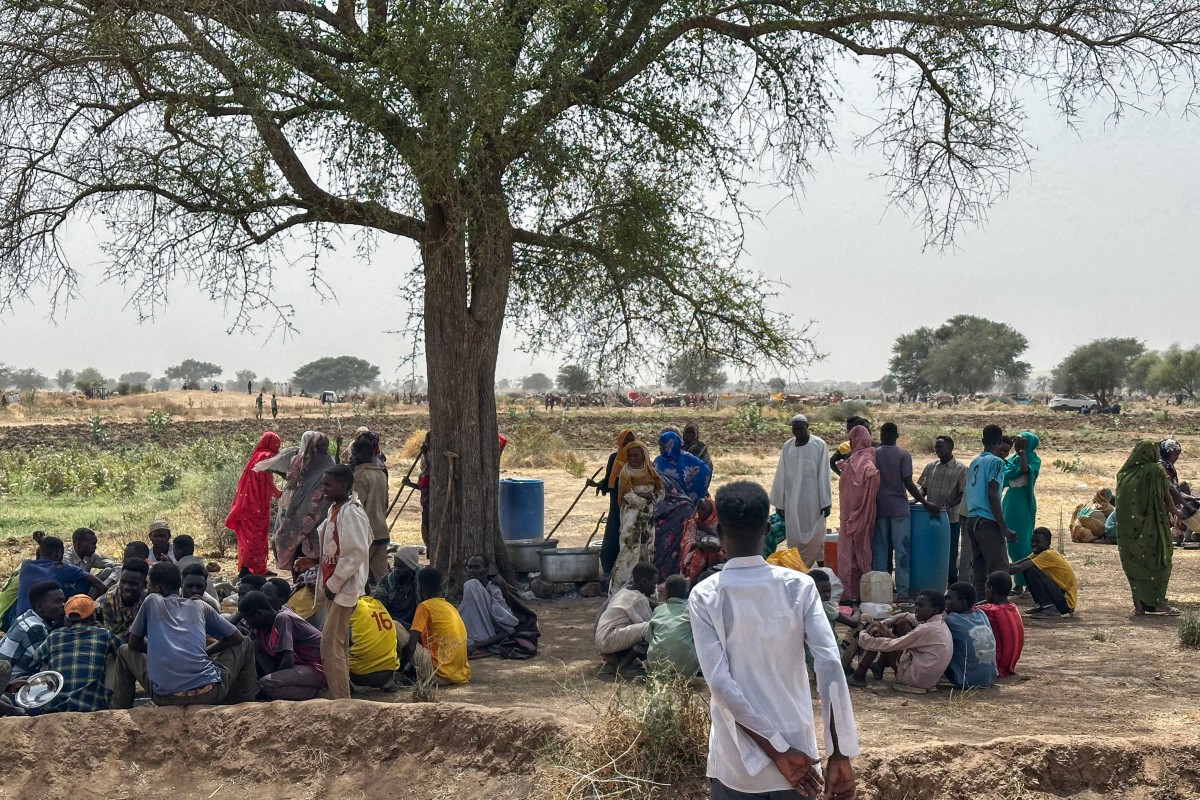
“The situation is unsafe for journalists, especially in conflict hotspots such as Darfur,” he says. “I often find myself lost, unsure of what to do. But I will continue to write, to share, to speak out on my social media platforms because the world must not forget the Sudanese people. Not in this brutal, heartbreaking war,” said Hassan who admits losing many friends and colleagues to the conflict.
But he is not alone. Nader Shilkawi, a 34-year-old journalist working with Sudan Radio and Television Corporation, says he has also lost a “large number” of friends and family members to the war.
Shilkawi was detained for three days by members of the paramilitary group who accused him of monitoring their movements, working with a security agency in the Omdurman area located in the State of Khartoum, and of having contact with Sudanese army leaders.
“I was exposed to many security challenges and threats during my field journalistic work,” Shilkawi tells AJR in a WhatsApp message. “I lost all my journalistic assets and my academic certificate. I have also been exposed to many health challenges. The war has greatly affected me and my family.”
Ezaldeen Arbab, another Sudanese journalist who fled the war to Uganda where he now heads the Sudanese Journalists’ Association – a satellite affiliate to the Sudanese Journalists Syndicate – feels the belligerents are waging a war on the media.
“Nearly 24 journalists have already been killed, eight of them in the line of duty,” Ezaldeen tells AJR in a WhatsApp message. “Journalist Hannan Ahmed was killed inside her house with her brother in Sudan's Gezira state last year by the RSF. The Sudanese army detained journalist Ali Aldali for months for an opinion article.”
Flee or Die
The Sudanese Journalists’ Syndicate has documented 506 violations against journalists since the start of the war. Of these, 71 threats, 27 of them targeting female journalists, were recorded in 2024 alone. Ezaldeen says the warring parties have restricted media coverage of the areas they control. While the paramilitary force only allows access to journalists who speak in their favour, the Sudanese army hinders media coverage of key areas including internally displaced (IDP) camps.
“The Sudanese army recently shortened the duration of media license from one year to a week,” according to Ezaldeen.
“More than 400 Sudanese journalists have been forced to flee and seek refuge in neighbouring countries including Egypt, South Sudan, Uganda, and Libya – with their families.”
In addition to physical threats, journalists in Sudan face enormous legal and professional challenges, with no functioning legal system to protect them or to investigate crimes committed against the press, according to CPJ. Some journalists have been charged with crimes such as terrorism, incitement, or espionage without access to due process.
“The collapse of the media industry has left many journalists without income, support networks, or mental health care,” says CPJ’s Sara Qudah. “Those still working face constant logistical hurdles, from power outages and internet shutdowns to the lack of safe transportation and basic equipment.”
Bouagila of RWB agrees and points out that Sudanese journalists are today subjected to “strict censorship” in areas under military control. They are pressured to relay official language consistent with the government's line. “Cases of assassinations enforced disappearances, seizure of journalistic equipment, raids on editorial offices, and broadcast bans have been documented,” he says.
Navigating ‘Heavy Censorship’
In areas controlled by the RSF, journalists face direct risks, particularly if they are suspected of relaying hostile messages. “Both sides exercise heavy censorship and severely restrict press freedom, placing journalists in an extremely vulnerable position, caught between two camps that reject any criticism,” says Bouagila.
The widespread use of censorship, violence and threats against journalists in Sudan is worsened by the decimation of media infrastructure. CPJ says armed groups have raided, occupied, or destroyed key television and radio stations, particularly in Khartoum.
Printing presses have stopped working due to looting, fuel shortages, and damage. Most independent newspapers have ceased operations, and several outlets have relocated abroad or simply shut down entirely. Reporters Without Borders has raised the alarm that Sudanese media are currently facing one of their “worst crises” since independence.
“Newspaper printing has stopped due to the paralysis of printing plants and distribution chains, forcing some to turn solely to digital media,” says Bouagila. “Long power and telecommunications outages have also interrupted radio and television broadcasts across large areas.”
All data and figures cited in this article are current as of May 2025.


